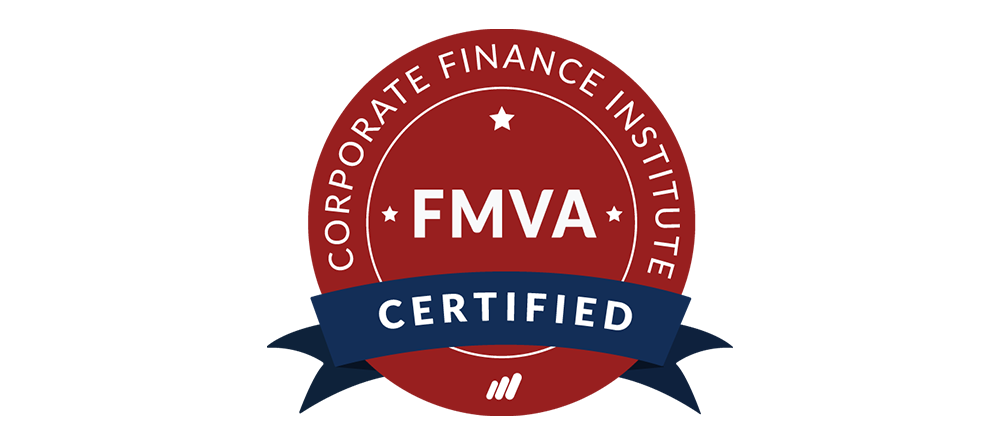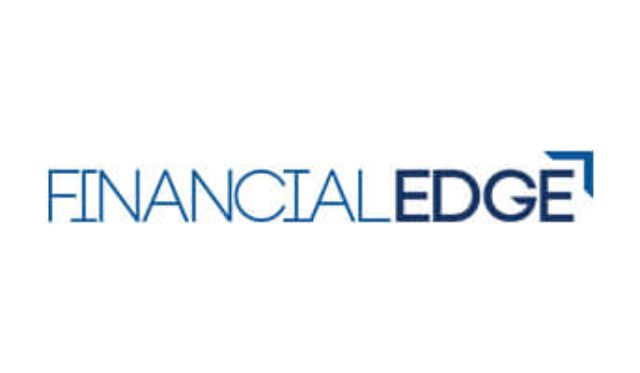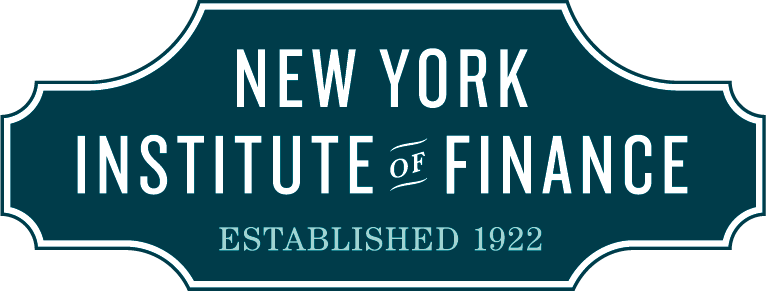Introduction
Financial modeling is very important in the finance industry. It helps professionals make informed decisions using data analysis. If you want to work in investment banking, corporate finance, or similar fields, it’s crucial to master financial modeling.
In this blog, you’ll find:
- An overview of financial modeling certification courses
- Key skills and knowledge gained from these courses
- A detailed review of the top 10 financial modeling certification programs available today
Each course has its own benefits designed for different skill levels and career goals. Whether you’re a beginner looking for a comprehensive program or an experienced professional seeking advanced certifications, there’s something for everyone. This guide will provide valuable insights to help you improve your Excel skills, learn valuation techniques, or specialize in areas like mergers and acquisitions or real estate.
Discover the various financial modeling courses that can boost your career and provide you with essential skills in financial modeling.
Understanding Financial Modeling
Financial modeling serves as a vital tool in the finance industry, providing a structured approach to forecasting a company’s financial performance.
Definition and Purpose of Financial Modeling
Financial modeling is the process of creating a numerical representation of a company’s financial performance. This involves using historical data and assumptions about future performance to create a model that can be used for decision-making. The purpose is to assess the impact of various business scenarios and facilitate strategic planning.
Key Skills Required for Effective Financial Modeling
To excel in financial modeling, several key skills are essential:
- Excel Proficiency: Mastery of Excel is critical, as it is the primary tool used for building financial models.
- Analytical Thinking: Ability to analyze data critically and understand how different variables interact.
- Attention to Detail: Precision in calculations and model structure is necessary to ensure accuracy.
- Knowledge of Financial Statements: Familiarity with income statements, balance sheets, and cash flow statements is crucial for effective modeling.
- Business Acumen: Understanding industry trends and economic factors enhances the relevance of the model.
Relevance in Investment Banking and Corporate Finance
Financial modeling plays a significant role in both investment banking and corporate finance. In investment banking, models are used for:
- Valuation Analysis: Determining the worth of companies during mergers or acquisitions.
- Deal Structuring: Assessing potential deal terms based on projected outcomes.
In corporate finance, financial models assist in:
- Budgeting and Forecasting: Helping companies plan for future revenues and expenses.
- Performance Evaluation: Analyzing actual results against projections to inform strategic decisions.
Engaging in financial modeling classes equips professionals with these critical skills, enhancing their capabilities within the competitive finance landscape.
1. FMVA Certification Program (Corporate Finance Institute)

Course By: Corporate Financial Institute
Instructors: Tim Vipond, Scott Powell, Duncan McKeen, Jeff Schmidt
Duration: 4-6 months
Pricing: $298 (Self-Study) | $508 (Full-Immersion)
The FMVA Certification Program, offered by the Corporate Finance Institute (CFI), is a well-regarded option for anyone interested in enhancing their financial modeling skills. This program dives deep into essential topics that finance professionals encounter daily.
Course Content Overview
The curriculum encompasses:
- Financial modeling techniques
- Excel skills tailored for finance
- Business valuation methods
- Budgeting and forecasting strategies
This comprehensive approach ensures that learners gain practical skills applicable in real-world scenarios.
Target Audience
The FMVA program caters to a broad audience, making it suitable for:
- Beginners wanting foundational knowledge
- Intermediate professionals seeking to sharpen their skills
- Advanced learners aiming to deepen their expertise
With its diverse content range, this course effectively bridges gaps in knowledge across varying experience levels.
Pros:
Key benefits of enrolling in the FMVA Certification Program include:
- Comprehensive Curriculum: The depth and breadth of topics prepare you for various finance roles.
- Recognized Certification: CFI’s certification is respected within the industry, enhancing your professional credibility and marketability.
Cons:
While the FMVA program offers numerous advantages, some considerations include:
- Cost Considerations: The investment required for enrollment might be higher than other options. Ensure you evaluate your budget before committing.
Pricing Details:
The FMVA program typically costs around $497 (we can get you a 50% discount on this click this link) for self-paced learning. This pricing includes access to all course materials, quizzes, and final certification upon completion.
Investing in this certification can yield significant returns by boosting your skill set and career prospects in competitive fields such as investment banking and corporate finance.
Read our full review of this course click here
2. Wall Street Prep’s Financial Modeling Certification Course

Course By: Wall Street Prep
Instructors: NA
Duration: 15-50 hours
Pricing: $199 (Basic) | $499 (Premium)
Wall Street Prep offers a comprehensive Financial Modeling Certification that is well-regarded in the finance industry. This certification focuses on key methodologies essential for building and analyzing financial models.
Course Structure and Methodologies Covered:
- Three-statement models
- Discounted cash flow (DCF) models
- Leveraged buyout (LBO) models
- Mergers & Acquisitions (M&A) modeling techniques
Recognition in the finance sector is a significant advantage of this program. Many professionals regard it as an industry standard, enhancing its credibility among employers.
Pros:
- Self-paced learning allows you to navigate through the course at your own speed, accommodating individual schedules and learning preferences.
Cons:
- Limited instructor interaction may deter some learners who prefer guidance from educators during their studies.
Pricing Details:
The course typically ranges from $600 to $1,200 (get 50% discount when you go through us click here), depending on the package selected. It provides a valuable investment for those pursuing careers in investment banking or corporate finance.
The Wall Street Prep course has received positive feedback from students who have successfully transitioned into finance roles after completing it. Each of these courses has been carefully curated based on their curriculum, industry recognition, and student feedback to ensure you get the best financial modeling education available.
Read our full review of this course click here
3. Business and Financial Modeling Specialization by Wharton University Of Pennsylvania Course

Course By: University Of Pennsylvania
Instructors: Bob Holthausen, Rick Lambert, Sergei Savin, Senthil Veeraraghavan and Richard Waterman
Duration: 3-4 weeks
Pricing: $79/month
The Business and Financial Modeling Specialization from the prestigious Wharton University of Pennsylvania stands out in the realm of financial modeling education. This program emphasizes key areas such as:
- Spreadsheet Modeling: Develops proficiency in Excel, a vital tool for financial analysis.
- Investment Analysis: Teaches techniques essential for evaluating investment opportunities.
A notable aspect of this course is the Capstone Project, allowing students to apply learned skills in a practical setting. This project enhances real-world applicability, encouraging students to tackle complex financial scenarios.
Pros and cons of the program are worth considering:
Pros:
- Backed by a prestigious institution, enhancing your resume.
- Comprehensive curriculum that covers both theory and application.
Cons:
- Requires a significant time commitment, which may not suit everyone’s schedule.
In terms of pricing, this specialization typically ranges from $70/annually to $100/annually, reflecting its high-quality content and institutional reputation.
When curating our list of the Top 10 Financial Modeling Courses, we evaluated courses based on their curriculum depth, industry recognition, and student feedback. The Wharton Business and Financial Modeling Specialization consistently receives positive reviews for its rigorous content and esteemed faculty, making it a strong candidate among other options like the FMVA Certification Program from the Corporate Finance Institute and Wall Street Prep course reviews.
4. Financial Edge Modeler Course

Course By: Financial Edge
Instructors: Andrew Jones, Alastair Matchett, Andrea Ward
Duration: 12 hours
Pricing: $276/annually
The Financial Edge Modeler Course stands out for its strong emphasis on practical skills, making it a valuable resource for aspiring finance professionals. This course is designed to enhance your ability to build and analyze financial models effectively.
What You’ll Learn
In this course, you can expect to learn:
- The fundamentals of financial modeling
- Techniques for building complex models
- Strategies for analyzing and interpreting financial data
- Best practices for presenting your findings
Course Features
Here are some key features of the Financial Edge Modeler Course:
- Video Content: The course features over 50 instructional videos that cover various aspects of financial modeling. These engaging video materials allow you to learn at your own pace while gaining hands-on experience through in-depth exercises.
- LinkedIn Profile Enhancement: Completing this course can significantly boost your LinkedIn profile. Employers often look for candidates with practical skills, and showcasing this certification can set you apart in a competitive job market.
Like any course, the Financial Edge Modeler Course has its strengths and weaknesses.
Pros
- In-depth exercises provide practical application of concepts learned.
- Strong focus on real-world scenarios enhances understanding.
Cons
- The course offers less theoretical content, which might not benefit those seeking a comprehensive academic approach.
Pricing Details
Pricing for the Financial Edge Modeler Course varies based on promotional offers but typically ranges from $300 to $600. It is considered a worthwhile investment given its focus on applicable skills essential for careers in financial modeling.
This course is part of our curated list spotlighting the best financial modeling certification courses available online. Selection criteria included curriculum quality, industry recognition, and feedback from former students, ensuring that you find the right fit for your professional development needs.
Through exploring options like the Financial Edge Modeler Course alongside others such as the FMVA Certification Program, Wall Street Prep course reviews, and Wharton Business and Financial Modeling Specialization reviews, you can make informed decisions about advancing your finance career.
Read our full review of this course click here
5. Advanced Financial Modeling & Valuation Course


The Advanced Financial Modeling & Valuation Course stands out for its practical approach to complex financial scenarios. This course is designed for those looking to deepen their understanding of advanced valuation methods, often using real-world case studies such as Uber & Facebook.
Key features include:
- Real-World Application: Participants engage in case studies that apply various valuation methods to actual companies, enhancing the learning experience.
- Depth of Valuation Methods: The curriculum covers a wide range of advanced techniques, preparing you for high-stakes financial analysis.
Pros
- Realistic Scenarios: Students gain insight into how theories apply in practice, making it an invaluable resource for serious finance professionals.
Cons
- Advanced Prerequisites: The course is tailored for learners with prior knowledge, which may deter beginners who lack foundational skills.
Pricing Details
Pricing varies based on the platform offering this course but typically ranges from $5 to $10, depending on access duration and additional materials provided.
This course appeared on our curated list of the best financial modeling certification courses available online. Selection criteria focused on curriculum quality, industry recognition, and student feedback. As you explore your options, consider how each course aligns with your career goals and existing skill set.
6. Mergers and Acquisitions Financial Modeling Course

Course By: Corporate Financial Institute
Instructor: Tim Vipond
Duration: 8 hours
Pricing: $298 (Self-Study) – $508 (Full-Immersion)
The Mergers and Acquisitions Financial Modeling Course caters specifically to professionals seeking to deepen their expertise in creating financial models for M&A scenarios. This course is designed for advanced learners who already possess a foundational understanding of financial modeling concepts.
Key Features:
- Focus on M&A Scenarios: The curriculum emphasizes building robust models that address the complexities involved in mergers and acquisitions, including valuations, synergies, and deal structures.
- Target Audience: Aimed at finance professionals looking to specialize in M&A, this course is ideal for those who want to enhance their skill set in a competitive field.
Pros:
- Specialized Knowledge: Participants gain an in-depth understanding of M&A processes, which can lead to better job opportunities and advancement within investment banking or corporate finance roles.
Cons:
- Narrow Focus: While the specialization offers significant advantages, it may limit broader applications of financial modeling skills in other areas of finance.
Pricing Details:
Pricing for the Mergers and Acquisitions Financial Modeling Course varies based on the provider. It’s advisable to compare costs against other courses like the FMVA Certification Program or Wall Street Prep course reviews to ensure value for your investment.
This comprehensive review highlights why this course deserves consideration among the Top 10 Financial Modeling Courses. Each selected program has been curated based on its curriculum, industry recognition, and student feedback, ensuring relevance in today’s financial landscape.
7. Real Estate Financial Modeling Course

The Real Estate Financial Modeling Course is designed specifically for those interested in real estate development projects. This course stands out within the Top 10 Financial Modeling Certification Courses due to its tailored content that addresses the unique challenges and opportunities in the real estate sector.
Key features include:
- Economic Principles: The curriculum emphasizes economic theories and principles that are crucial in the context of real estate. This approach helps learners understand market dynamics and investment strategies effectively.
- Industry Relevance: The course provides practical knowledge applicable to real-world scenarios, making it particularly valuable for individuals pursuing careers in property development or investment analysis.
Pros:
- Directly addresses industry-specific skills needed for successful real estate modeling.
- Enhances understanding of financial principles as they apply to real estate transactions.
Cons:
- Content may be too specialized, limiting its applicability for those looking to broaden their financial modeling expertise beyond real estate.
Pricing Details
Pricing varies according to the provider, typically ranging from $399 to $499. This investment reflects the quality of education and practical insights offered.
This course adds depth to our curated list of financial modeling certification courses available online, selected based on their comprehensive curriculum, industry recognition, and positive student feedback. Each program, including the FMVA Certification Program from the Corporate Finance Institute and others like Wall Street Prep’s offerings, has been evaluated with a focus on delivering valuable skills to enhance your finance career.
8. eCommerce Financial Modeling Course

Course By: Corporate Finance Institute
Instructor: Tim Vipond
Duration: 6.5 hours
Pricing: $298 (Self-Study) – $508 (Full-Immersion)
The eCommerce Financial Modeling Course is specifically designed for individuals venturing into online businesses or professionals already established in the eCommerce sector. This course provides invaluable insights tailored to meet the unique demands of online markets.
Key concepts covered include:
- Market Analysis: Understanding consumer behavior and trends in the digital landscape.
- Revenue Projections: Methods for forecasting sales and growth in an online environment.
- Cost Structures: Analyzing variable and fixed costs associated with eCommerce operations.
Pros:
- Growing Field Relevance: As eCommerce continues to expand rapidly, skills gained from this course are essential for navigating a competitive landscape.
Cons:
- Niche Focus: The specialized content may not appeal to all finance professionals, particularly those seeking a broader financial modeling perspective.
Pricing Details:
Course pricing typically varies based on the provider, but it is essential to evaluate whether the investment aligns with your career goals and potential returns in the dynamic world of eCommerce.
This course is part of our curated list of the best financial modeling certification courses available online, highlighting options like FMVA Certification Program, Corporate Finance Institute course reviews, Wall Street Prep course reviews, and Wharton Business and Financial Modeling Specialization reviews. Selection criteria included comprehensive curriculum offerings, industry recognition, and positive student feedback. Each course aims to equip you with practical knowledge applicable in diverse finance careers.
9. Sensitivity Analysis Course

Course By: Corporate Finance Institute
Instructor: Tim Vipond
Duration: 2.5 hours
Pricing: $298 (Self-Study) – $508 (Full-Immersion)
The Sensitivity Analysis Course offers an in-depth exploration of DCF models and scenario analysis techniques, essential for understanding the impact of varying assumptions on financial outcomes. This course is particularly relevant in finance, where decision-making relies heavily on precise modeling.
Key Focus Areas:
- Discounted Cash Flow (DCF) Models: Learn to build and analyze DCF models, a foundational skill in financial modeling.
- Scenario Analysis Techniques: Gain insights into how different scenarios affect valuation and investment decisions.
Importance in Decision-Making:
Understanding sensitivity analysis enhances your ability to assess risk and make informed decisions. By evaluating how changes in inputs influence outputs, you develop a critical analytical perspective crucial in finance.
Pros:
- Enhances Analytical Skills: This course sharpens your ability to dissect complex financial models, making you more adept at identifying potential risks and opportunities.
Cons:
- Specialized Content: The focus on sensitivity analysis may be too narrow for some learners who seek a broader understanding of financial modeling.
Pricing Details:
Pricing typically varies based on the provider, but expect competitive rates reflecting the specialized nature of this course.
With our curated list of the best financial modeling certification courses available online, including reviews from the FMVA Certification Program, Corporate Finance Institute, Wall Street Prep, and Wharton Business and Financial Modeling Specialization, you can make informed choices based on curriculum quality, industry recognition, and student feedback.
10. Excel and VBA Programming for Finance by NYIF Course

Course By: New York Institute of Finance
Instructor: NA
Duration: NA (depends on Physical / Live classes)
Pricing: $2489 (loan options available)
The Excel and VBA Programming for Finance course by the New York Institute of Finance (NYIF) is designed for those aiming to enhance their technical skills in financial modeling. This intermediate-level course focuses on complex Excel functions and the programming language, Visual Basic for Applications (VBA), which is essential for quantitative finance roles.
Key Features:
- In-depth coverage of advanced Excel functions.
- Comprehensive introduction to VBA programming tailored for financial applications.
- Practical exercises to reinforce learning.
Relevance in Modern Finance Roles
Proficiency in Excel and VBA is increasingly vital as financial analysts and investment bankers rely on automation and data analysis. This course equips you with the necessary tools to build dynamic financial models efficiently.
Pros
- Enhances technical proficiency, making you more competitive in the job market.
- Provides hands-on experience with real-world financial scenarios.
Cons
- Not beginner-friendly; prior knowledge of Excel is required.
- May be challenging for those without a background in programming.
Pricing Details
The course typically ranges from $2,000 to $2,500, depending on promotions or institutional partnerships.
In our curated list of the Top 10 Financial Modeling Certification Courses, this program stands out due to its rigorous curriculum and industry recognition. Courses like the FMVA Certification Program and Wall Street Prep have been evaluated alongside it based on feedback from students and professionals, ensuring you have access to high-quality training options.
Choosing the Right Financial Modeling Course for You
Selecting the right financial modeling course requires careful consideration of several key factors. Tailoring your choice to align with your personal and career aspirations will maximize the benefits you gain from the course. Here are some essential aspects to evaluate:
1. Career Goals
- Establish your professional objectives. Are you aiming for a role in investment banking, corporate finance, or perhaps real estate?
- Choose a course that aligns with your targeted industry. Courses like Mergers and Acquisitions Financial Modeling are designed for specialized roles, while eCommerce Financial Modeling caters to those interested in online business sectors.
2. Skill Level**
- Assess your current proficiency in financial modeling and Excel.
- Beginners might find the FMVA Certification Program suitable, offering foundational knowledge.
- Advanced learners could benefit from specialized courses such as Advanced Financial Modeling & Valuation, which delve deeper into complex valuation scenarios.
3. Preferred Learning Style**
- Consider whether you thrive in structured environments or prefer self-paced learning.
- Programs like Wall Street Prep’s Financial Modeling Certification offer flexibility through self-study modules, ideal for busy professionals.
- Hands-on courses such as Financial Edge Modeler provide practical exercises that can enhance learning through application.
4. Time Commitment**
- Evaluate how much time you can dedicate to completing the course.
- Some programs may require extensive engagement, while others may have lighter workloads.
5. Budget**
Determine your budget for certification courses. Pricing varies significantly across different programs.
By carefully weighing these factors and aligning them with your needs, you can make an informed decision when choosing a financial modeling course that best suits your career path and personal growth objectives.
